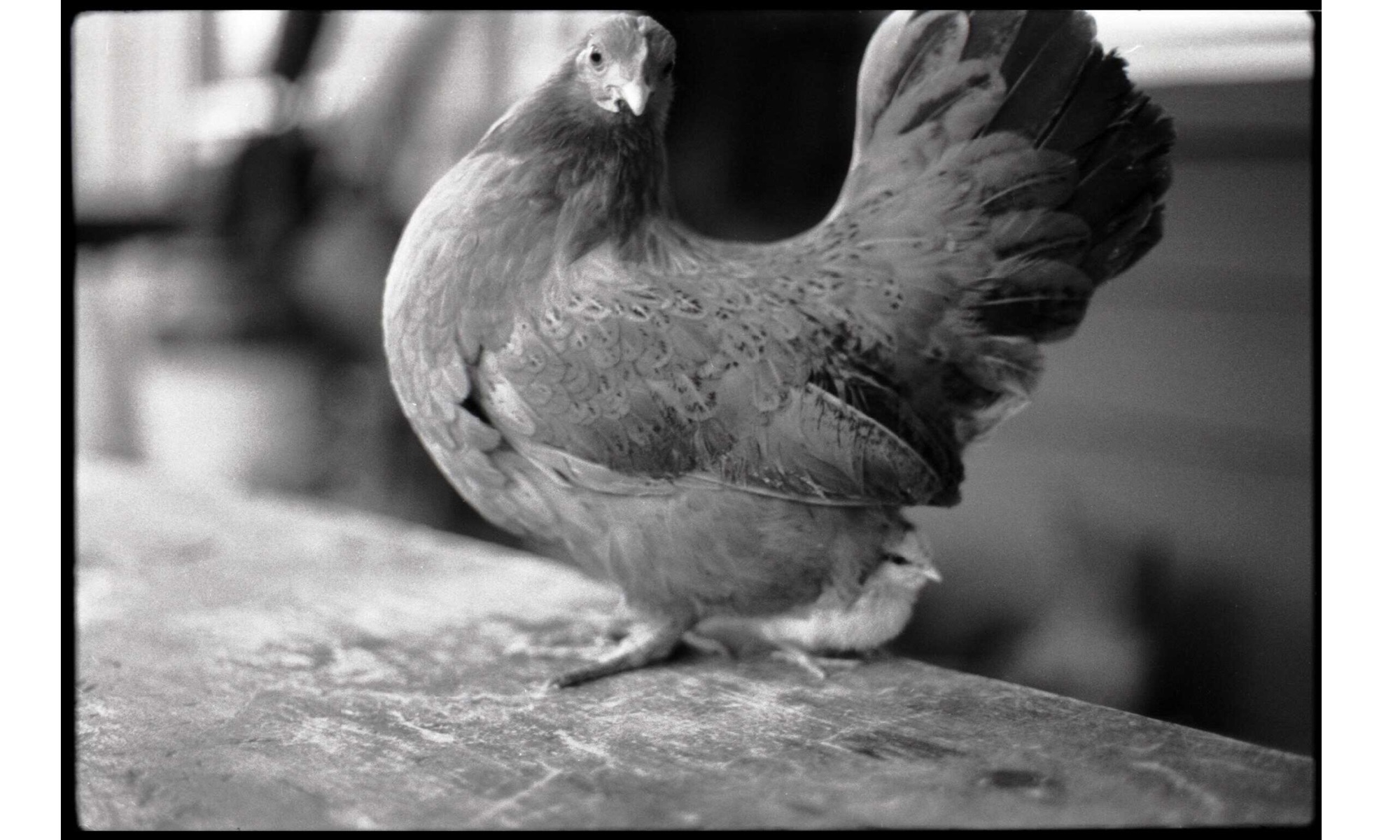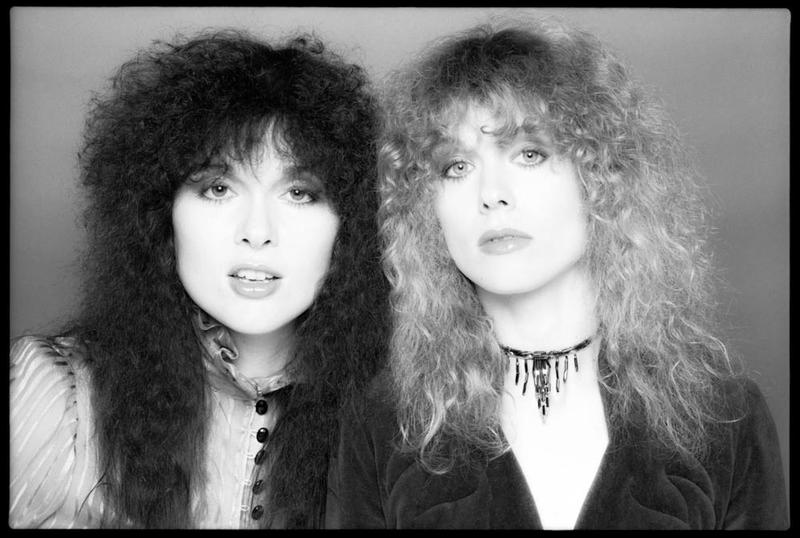As we dip into the Top 40, we’ve got a bit of a mix from the 70’s, 80’s and a peek into the 90’s. We also see Nancy’s first appearance as a lead vocalist (one of only two appearances in the Top 40, I believe.)
#49 – Rage, Desire Walks On (1993)
written by Ann Wilson, Nancy Wilson, Keturah Hain
Released in November 1993, Desire Walks On was the first album where the Wilson sister reclaimed the song-writing chores after three commercially successful albums where they let hired hit–makers contribute most of their… well, hits! It was their 11th studio album and the final studio album to feature longtime member Howard Leese, who, aside from the Wilson sisters, is the band’s longest-serving member. After their string of three smash hit albums for Capitol, Desire Walks On was a bit of a disappointment, peaking at #48 on Billboard’s Album Chart, although it was certified Gold. Surprisingly, it is the album with the most songs to appear on my Top 40, with seven showings.
Rage feels like Ann Wilson just letting all the pent up anger she had been dealing with throughout the 80’s, in a fiery explosion of rock & roll vocalizations. The song starts off in a low-key manner, with some nice electric piano base to build on before erupting in… well, rage in the chorus, with Ann howling her fury while Led-Zeppelin like guitar riffs tear through the aural landscape. My favorite Heart songs tend to be the ones where they blend the acoustic and the electric, but Rage is something visceral and appealing, and it anchors my Top 40 Heart songs nicely.
#48 – Raised On You, Bebe le Strange (1980)
written by Nancy Wilson
Let it be revealed here, I’m not a fan of Nancy Wilson as a lead vocalist. As a guitarist, she is amazingly talented. When she harmonizes, she’s the perfect compliment to her sister Anna’s near perfect voice. But as a lead vocalist, while competent, there is just something missing in the quality of her voice that leaves me a little cool. While Nancy sang some of Heart’s big 80’s hits, most notably their first chart-topper, These Dreams (which is one of my all-time least favorite Heart songs) most of her songs leave me cold.
However, back in the 70’s I was fairly enamored with Nancy Wilson — her musicianship during a time when there just weren’t that many women in rock who did more than sing — and I overlooked the fairly average voice and clicked with a couple of her songs. She usually sang at least one song on most albums (later she would get more than one on occasion) although I always wondered why you would have anyone else sing when you had Ann Wilson on lead vocals. Regardless I was head over heels for Raised On You when Bebe le Strange first came out. A rollicking, bluesy, piano-driven number (I have such a weakness for piano-driven rock) is sounded so different, both for Heart and for anyone at the time really. Plus, not only did Nancy sing lead, she played all the instruments on the track with the exception of drums. In addition to the fantastic piano line, I loved Nancy’s electric guitar solo in Raised on You, as she stuck to the lower strings to create something really substantial and resonant. Raised on You is a fun song, and had I made the list in the 80’s, I bet it would be much, much higher, but as it stands, at least it made my Top 40.
#38 – Here Song, Magazine (1977, 1978)
written by Ann Wilson
Magazine is a strange Heart album, and Here Song could be considered a throw-away song. Magazine is the third studio album by Heart, originally released on April 19, 1977, by Mushroom Records in unfinished form, without the band’s permission, just one month before they released Little Queen on Portrait Records. A second authorized version of the album was released on April 22, 1978. Heart’s contract with Mushroom Records was for two albums and were in Vancouver working on their second album, but a falling out with Mushroom over an advertisement celebrating the sales of Dreamboat Annie put things to a halt. The advertisement, which ran as a full-page in Rolling Stone, was designed to resemble the cover of a salacious tabloid-style magazine, and showed the sisters bare-shouldered (as on the Dreamboat Annie album cover) with the suggestive caption “It Was Only Our First Time!” (This falling-out was the basis for one of Heart’s most well-known songs, Barracuda.) Only five incomplete recordings were made during these 1976 sessions.
While keeping the group under contract, Mushroom apparently was not interested in releasing a second Heart album. Heart’s producer Mike Flicker, ended his relationship with the label. The contract stipulated that Flicker would be the producer of all Heart recordings. The band took the position that since Mushroom was unable to provide the services of Flicker they would be free to sign with another label. Heart hired a lawyer to resolve the dispute, and they signed with Portrait Records. The change in labels resulted in a prolonged legal battle with Mushroom, which still had a two-album contract and claimed they had the legal right to release a second Heart album after all. Still in possession of the five unfinished studio recordings, as well as unreleased live tracks recorded in 1975, Mushroom had them remixed by the band’s recording engineer, but without the presence of any group members. Originally released as the B-side of the Canadian single, How Deep it Goes, from 1975’s Dreamboat Annie, Here Song was added to the mix and appeared on the unauthorized release. Unhappy with the somewhat unpolished studio performances and the inclusion of the live recordings, the group took Mushroom to court with the aim of having the 1977 release of Magazine withdrawn from the market. The Seattle court ruled that Mushroom had to recall the album, but the terms of the settlement required that Heart provide a second album for Mushroom. Heart chose to fulfill this obligation by finishing the previously released songs to a quality of their satisfaction, and an approved version of Magazine was released in 1978.
Here Song is a beautiful, acoustic ballad, that feels like it was written by a very young Ann Wilson. The track features a sweet, almost fragile vocal from Ann, as well as she and her sister on acoustic guitars. Ann added some flute, and Howard Leese conducted a lovely string accompaniment to back the beautiful, simple love song. Running only 1 minute and 34 seconds, it’s really just a fragment of a song, but it’s beauty and innocence have always appealed to me, and it warrants its appearance on my Top 40.
#37 – Nothin’ At All, Heart (1985)
written by Mark Mueller
Heart’s amazing success during the mid-80’s MTV heyday is a very conflicting time in their career. They reached the pinnacle of their success as a band commercially, but were struggling with creative challenges, promotional battles, and personal struggles. After being dropped by Portrait Records due to the lackluster performance of 1983’s Passionworks, Capitol Records scooped them up under the condition that the label would be allowed to bring in hit makers to write their songs. Heart had always written nearly all the songs they recorded, so this was a major change for them. In addition, MTV was at the reigning method for the masses to discover new music, and the hyper-visual medium forced the band to have to think about their image and the appearance almost more than the music. It would lead to a very weird period for the band, and while I stuck with them, the three albums released during this period only yielded a total of 6 songs in my Top 40.
Which brings us to Nothin’ At All, the first of this era’s songs to appear on my list. Just because a song is written by a “hit maker” with the whole reason for it to exist is to be a successful pop song, doesn’t mean it can’t be good. Powered by Ann’s powerful vocals, and backed by a talented rock band, this effervescent, dreamy love song may have been a bit vapid lyrically, but it was certainly easy on the ears and quite tuneful. It would have probably been a nice listen from anyone who sang it, but Ann and Heart, as usual, can take even the mundane up a notch, and make it noticeable. In addition to the great vocals, Nancy and Howard Leese share a great, melodic guitar solo that is notable as well. Nothin’ At All was the fourth single to be released from 1985’s Heart, following What About Love, Never, and These Dreams. It was also the fourth song to hit the Billboard Top 10. Pretty astounding for a band that had pretty much tanked with their previous album. The video, shown below, is an example of the sexy, glam-rock look the record label wanted the band to adopt, and also shows how they were beginning to thrust Nancy out in the spotlight more and more, even when Ann was singing, because they felt she was the more attractive of the two, due to Ann’s weight, an issue that would only get more challenging as the image-focused 80’s moved on.
#36 – Bebe le Strange, Bebe le Strange (1980)
written by Ann Wilson, Sue Ennis, Nancy Wilson, Roger Fisher
The title track from their fifth studio album, Bebe le Strange marked the first major change for the band, as lead guitarist Roger Fisher quite a few months before it was released in 1980. With Roger’s departure, as well as the end of his long-term relationship with Nancy, (and the end of Ann’s relationship with Roger’s brother, band-manager Michael Fisher) this marked the moment when Ann and Nancy took creative control of the band. The change saw Howard Leese handling more of the lead guitar duties, and Nancy taking on more electric guitar, losing some of that acoustic/electric blend that the band was known for. While the album was a commercial success climbing to #5 on Billboard’s Hot 20o, being certified gold, and spawning the Top 40 hit, Even It Up, the title-track was inexplicably the first U.S. Heart single to fail to make the Top 100.
Bebe le Strange was written about a fictional, female rock & roll star (loosely based on an amalgam of Ann and Nancy perhaps) from the point of view of a fan who wants is devoted to her. It’s a nice chugging rocker, and features Ann on bass guitar. There’s something almost grungy about the guitar throughout and Michael Derosier shines on drums as usual. I’ve included the studio track, followed by a nice live version recorded in 2005.

